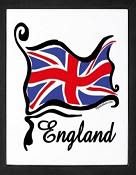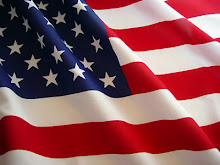Battle of Lexington and Concord

The first shots starting the revolution were fired at Lexington, Massachusetts. On April 18, 1775, British General Thomas Gage sent 700 soldiers to destroy guns and ammunition the colonists had stored in the town of Concord, just outside of Boston. They also planned to arrest Samuel Adams and John Hancock, two of the key leaders of the patriot movement.
The British Army's infantry, nicknamed "redcoats" and sometimes "devils" by the colonists, had occupied Boston and had been augmented by naval forces and marines to enforce the Intolerable Acts, which had been passed by the British Parliament to punish the Province of Massachusetts Bay for the Boston Tea Party and other acts of protest. Thomas Gage had no control over Massachusetts outside of Boston, where implementation of the Acts had increased tensions between the Patriot Whig majority and the Tory minority. Gage's plan was to avoid conflict by removing military supplies from the Whig militias using small, secret and rapid strikes. This struggle for supplies led to one British success and then to several Patriot successes in a series of nearly bloodless conflicts known as the Powder Alarms.
On April 14, 1775, Gage received instructions from Secretary of State William Legge, to disarm the rebels, who were known to have hidden weapons in Concord, among other locations, and to imprison the rebellion's leaders, especially Samuel Adams and John Hancock. William gave Gage considerable discretion in his commands.
The Lexington militia in particular began to muster early that evening, hours before receiving any word from Boston. A well known story alleges that after nightfall one farmer, Josiah Nelson, mistook the British patrol for the colonists and asked them, "Have you heard anything about when the regulars are coming out?", upon which he was slashed on his scalp with a sword.
The rebellion's ringleaders with exception of Paul Revere and Joseph Warren had all left Boston April. They had received word of William's secret instructions to General Gage from sources in London before they reached Gage himself. Adams and Hancock had fled Boston to the home of one of Hancock's relatives in Lexington where they thought they would be safe from the immediate threat of arrest.
Between 9 and 10 pm on the night of April 18, 1775, Joseph Warren told William Dawes and Paul Revere that the King's troops were about to embark in boats from Boston bound for Cambridge and the road to Lexington and Concord. Warren's intelligence suggested that the most likely objectives of the regulars' movements later that night would be the capture of Adams and Hancock. They did not worry about the possibility of regulars marching to Concord, since the supplies at Concord were safe, but they did think their leaders in Lexington were unaware of the potential danger that night. Revere and Dawes were sent out to warn them and to alert colonial militias in nearby towns.
doctor reviews

















0 Response to "Battle of Lexington and Concord"
Publicar un comentario